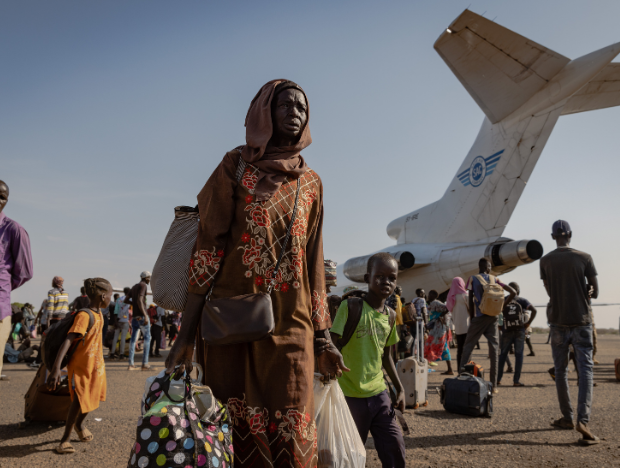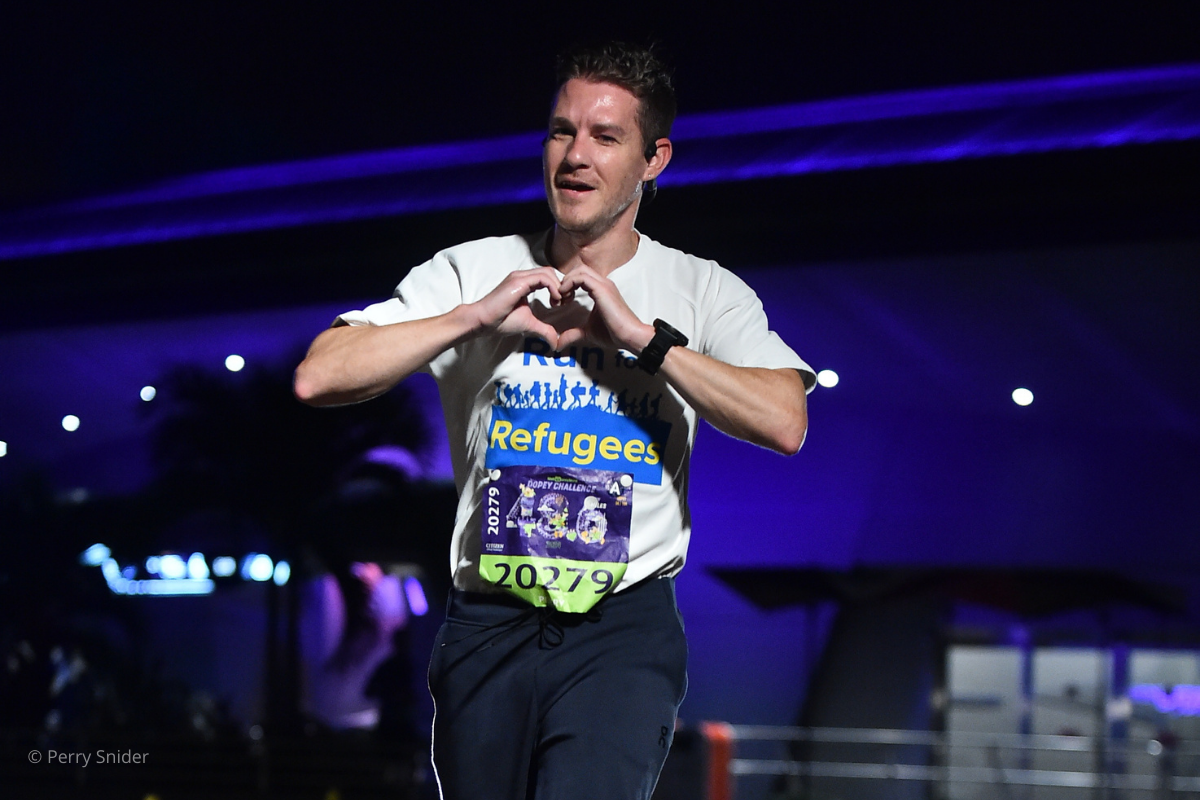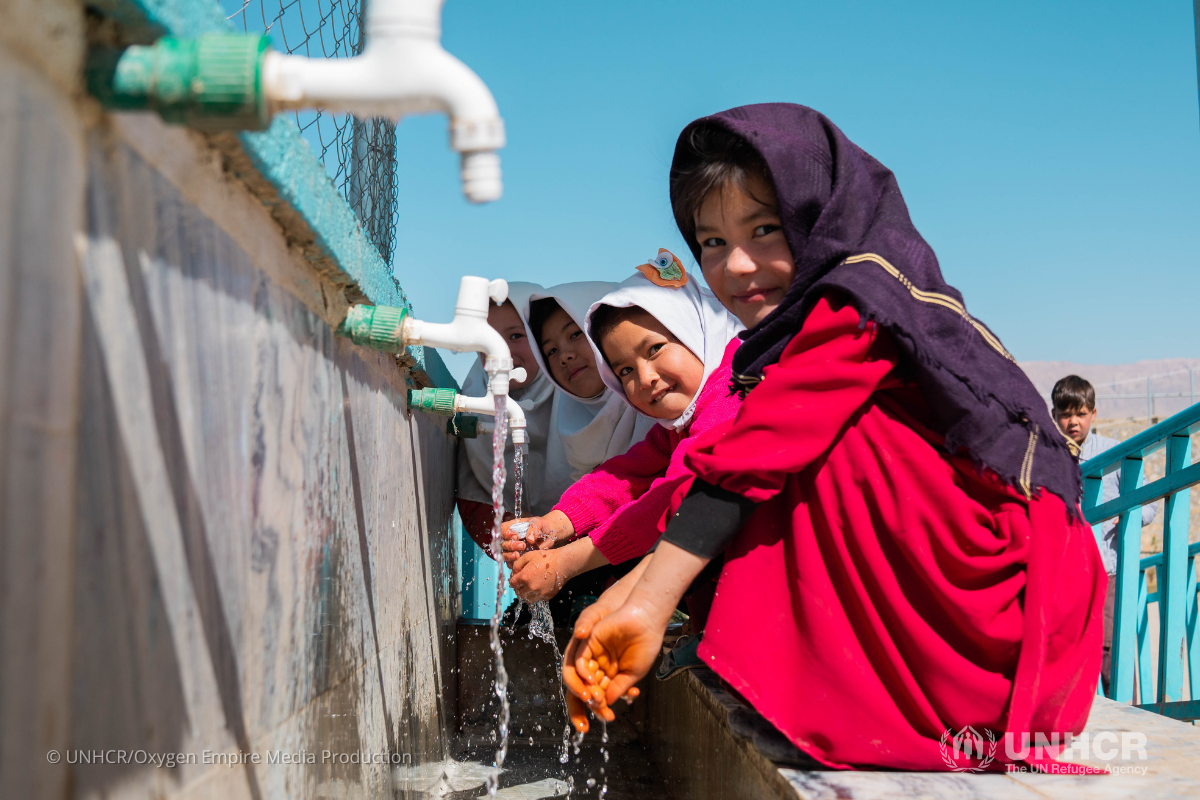Refugee advocate develops app to bring real-time protection to people in Afghanistan
“I'll never forget the day. It was May 9, 2018, and I was just a few steps away from my home in Kabul, and there was just a rush of people in a scramble,” recalls Sara Wahedi, founder and CEO of Ehtesab and former Afghan refugee.
“Then, three back-to-back explosions, maybe 10, 20 yards away from my home.”
Fortunately, Sara was safe and unharmed. But after the attack, her neighborhood was locked down, and authorities shared no information with residents. At the time, there was no real-time emergency alert system in her community.
“It was like a lightbulb moment for me – that this is exactly the kind of tool that needs to exist in crisis states, in crisis regions.”
After the bombings, Sara launched Ehtesab, a mobile app that crowdsources information about emergency events and then verifies them before sending alerts to users in Afghanistan.
Launched nearly six years ago, Ehtesab has sent a quarter million alerts to users across the country on incidents ranging from explosions and arrests to road closures and traffic accidents, to extreme weather and earthquakes.
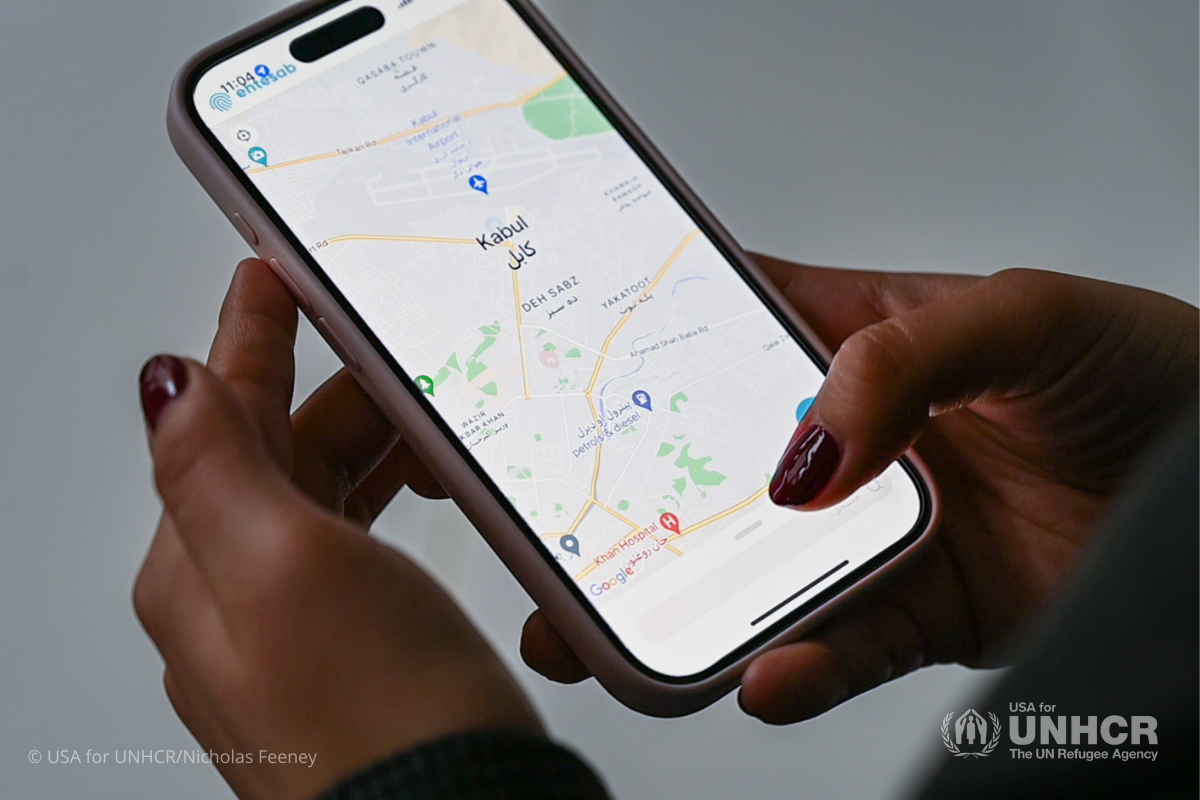
Ehtesab — a name created from words in Dari and Pashto that translate to transparency, accountability and responsibility – is rooted in the idea that freedom of information is essential to protection.
“Access to information is one of those rights that many people don't know is entrenched in the Universal Declaration of Human Rights,” shares Sara. “There should never be a politicization of urgent information.”
Like the inspiration to launch Ehtesab, Sara’s advocacy for forcibly displaced people and the empowerment of traditionally marginalized communities — particularly women in Afghanistan — comes from lived experience. As a child, her family was forced to flee the country.
The family’s refugee journey brought them first to Germany, then to the United States and finally to Canada, where they were welcomed to resettle and rebuild.
“I grew up in Canada,” shares Sara. “I always felt like I missed being in Afghanistan, and I think that's the reason why my work is so focused on Afghanistan.”
By 2018, Sara had returned to Afghanistan to work in the Kabul office of the former president. But the bombing on May 9, 2018, fundamentally shifted Sara’s career path and advocacy work.
She founded Ehtasab and enrolled at Columbia University in New York City to study data science and urban studies. She continues to lead Ehtesab as a full-time student.
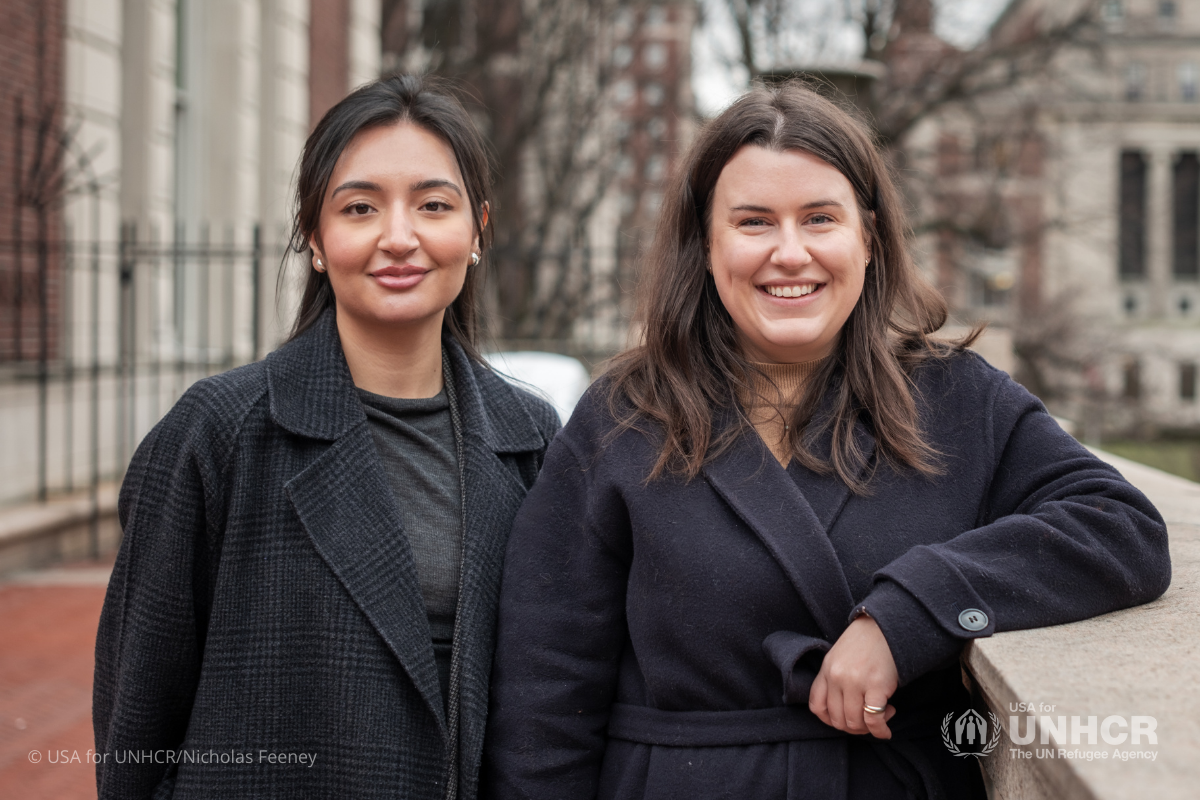
“Something that we've been working on [at Ehtesab] is trying to figure out how to bring women's voices across Afghanistan to the forefront,” says Sara. “We're working with interesting technology and machine learning to ensure the safety of women while they're reporting incidents.”
Finding safe and equitable ways to include women’s voices at Ehtesab has been important for Sara from day one. Sixty percent of Ehtesab employees are women in software engineering and data analysis positions.
Another group of Afghan voices Sara is lifting and trying to include in consequential decision-making spaces are those of Afghanistan’s refugee youth.
In December 2023, Sara spoke on a panel discussing challenges, solutions and opportunities for Afghan refugees at the Global Refugee Forum in Geneva, Switzerland. Addressing the audience, Sara shared the harrowing stories of three Afghan refugee youth living in Iran, Pakistan and Indonesia, noting their great potential and the challenges they face to realize it.
“They are the architects of Afghanistan’s future,” she begins.
“Their desperation to continue their education and chase their dreams is palpable, yet they find themselves in a paradoxical state of refuge, one that [does not] offer the fullness of safety and strips them of their dignity,” she continues.
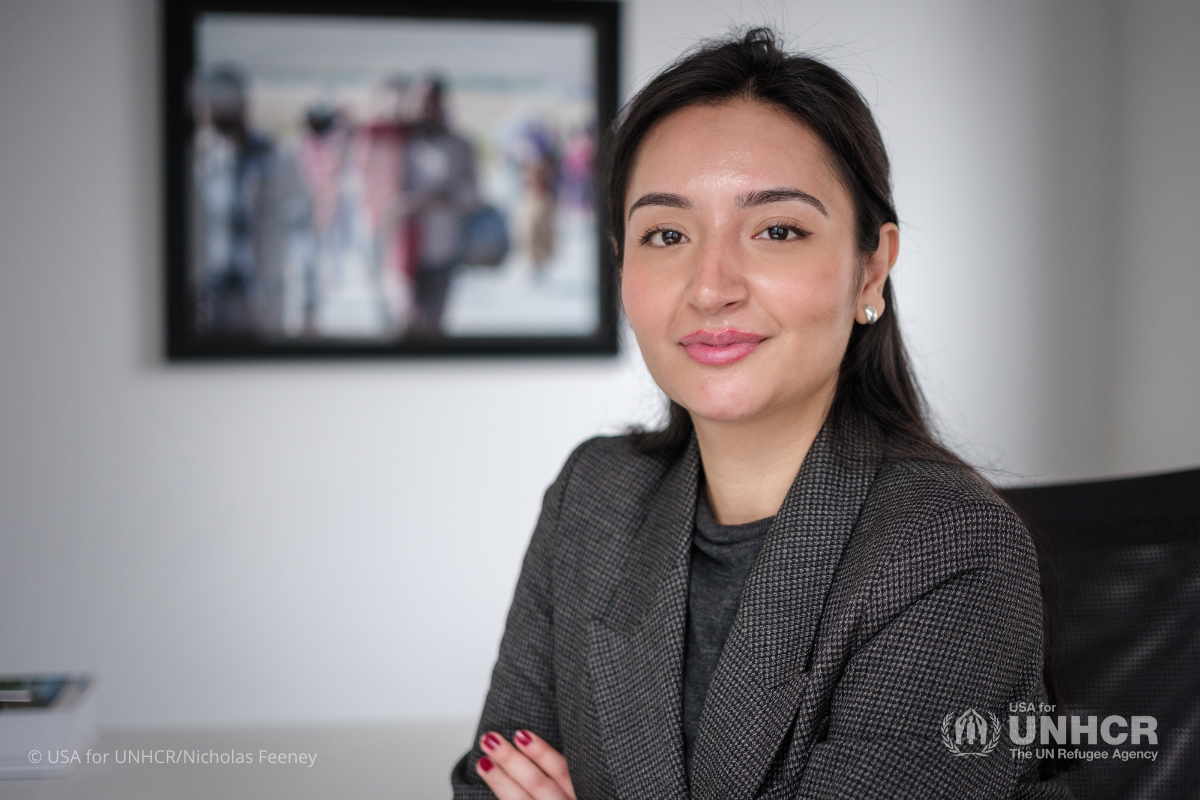
After graduating from Columbia University, Sara plans to continue advocating for Afghans and seek connections between technology, human rights and refugee protection. She is also considering graduate studies in international affairs and policy.
“What's important for me now is to connect the technology that I've been able to lead over the last five to six years, but bridge that with the policies of agencies like the United Nations and [other] international organizations.”
She would also like to be able to expand Ehtesab to reach people in other countries.
“[I want to] spread the message in terms of this fundamental human right, that every human on this earth has access to information that is non-politicized, that's immediate and that can support the safety and health of our communities.”
